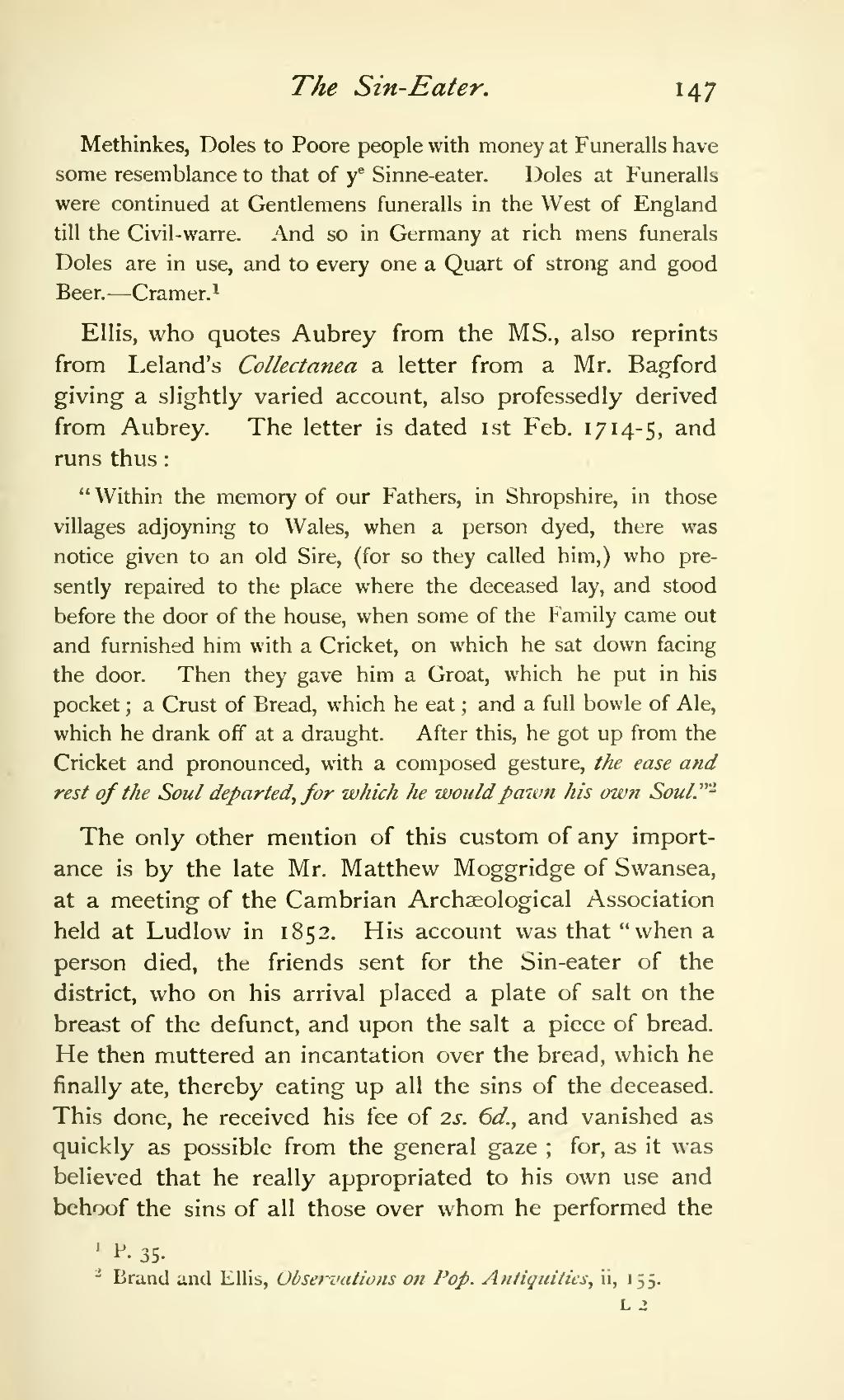Ellis, who quotes Aubrey from the MS., also reprints from Iceland's Collectanea a letter from a Mr. Bagford giving a slightly varied account, also professedly derived from Aubrey. The letter is dated 1st Feb. 17 14-5, and runs thus:
"Within the memory of our Fathers, in Shropshire, in those villages adjoyning to Wales, when a person dyed, there was notice given to an old Sire, (for so they called him,) who presently repaired to the place where the deceased lay, and stood before the door of the house, when some of the Family came out and furnished him with a Cricket, on which he sat down facing the door. Then they gave him a Groat, which he put in his pocket; a Crust of Bread, which he eat; and a full bowle of Ale, which he drank off at a draught. After this, he got up from the Cricket and pronounced, with a composed gesture, the ease and rest of the Soul departed, for which he would pawn his oivn Soul."[2]
The only other mention of this custom of any importance is by the late Mr. Matthew Moggridge of Swansea, at a meeting of the Cambrian Archaeological Association held at Ludlow in 1852. His account was that "when a person died, the friends sent for the Sin-eater of the district, who on his arrival placed a plate of salt on the breast of the defunct, and upon the salt a piece of bread. He then muttered an incantation over the bread, which he finally ate, thereby eating up all the sins of the deceased. This done, he received his fee of 2s. 6d., and vanished as quickly as possible from the general gaze; for, as it was believed that he really appropriated to his own use and behoof the sins of all those over whom he performed the
